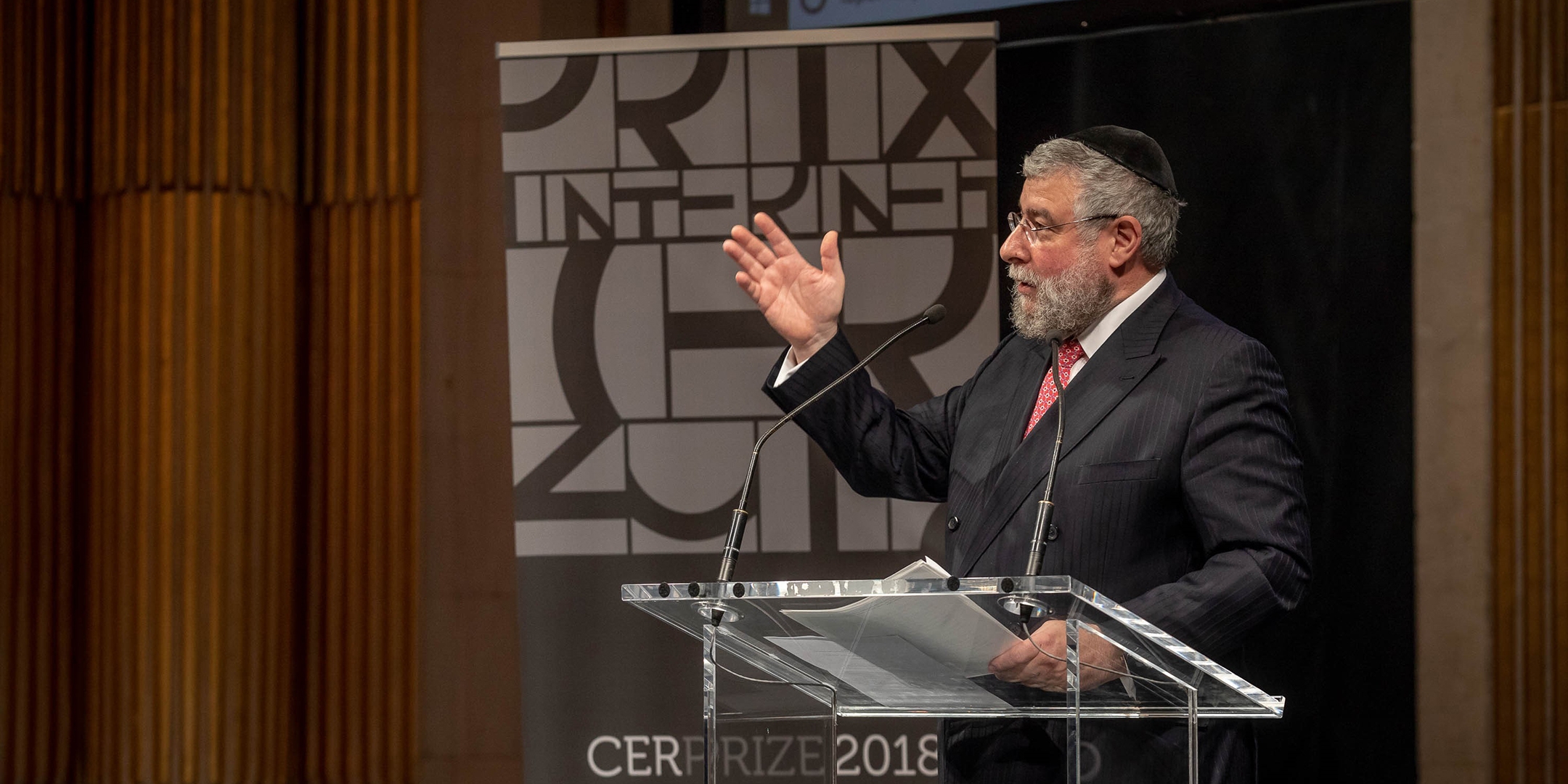Exiled from Russia, Pinchas Goldschmidt is formally out as Moscow’s chief rabbi after 29 years
An influential spiritual leader in much of Europe, he had left Russia following its invasion of Ukraine

Rabbi Pinchas Goldschmidt delivers a speech in Paris, France, Oct. 10, 2018. (Conference of European Rabbis)
(JTA) — Pinchas Goldschmidt, who left Russia following its invasion of Ukraine, is no longer the chief rabbi of Moscow after 30 years with the title.
The board of the Moscow Jewish Religious Society voted last month to support a contract extension for Goldschmidt, even though he had been in Israel for some time. But the RBC, a Russian news organization, reported Wednesday that the group, which represents Goldschmidt’s congregation and office, said he no longer had a role there.
“The contract has ended. … There is no question of successors, perhaps there will be none,” Olga Yessaulova, a spokesperson for the group, told RBC. She said Goldschmidt had not been fired.
Goldschmidt left Russia in March, two weeks after outbreak of Russia’s invasion of Ukraine. His daughter-in-law, the journalist Avital Chizhik-Goldschmidt, said recently that Goldschmidt had been pressured to support the war publicly but had declined to do so.
The community decided not to renew Goldschmidt’s contract despite the board vote, a person with knowledge of the community told the Jewish Telegraphic Agency on condition of anonymity, citing concerns for the community’s safety. The decision not to extend Goldschmidt’s contract also owed to safety concerns, the source said.
Contacted by the Jewish Telegraphic Agency, Goldschmidt declined to discuss what happened to result in him leaving the position he had held since 1989.
“As I say goodbye to Moscow and Russia, I am thinking especially of one man: Albert Reichmann, who proposed me for the post of chief rabbi and who had faith in me that I would be able to fulfill that great responsibility,” Goldschmidt told JTA. Reichman, 93, is a Canadian philanthropist who was deeply involved in the revival of Russian Jewry. He is currently hospitalized in critical condition.
“I am leaving a community in distress. But from the outside, I will do my utmost to help my beloved community,” Goldschmidt said.
In a statement to his congregants at the Moscow Choral Synagogue, Goldschmidt said: “I wish you all the very best, stay in touch and will provide assistance and support to each of you,” according to RBC.
Other rabbis in Russia, including the country’s chief rabbi, Berel Lazar, and his top spokesperson Boruch Gorin, have remained in the country after expressing concerns about the war.
Lazar and Gorin belong to a Chabad-affiliated group, the Federation of Jewish Communities of Russia, that has long enjoyed strong ties to President Vladimir Putin. The group gained ascendency over all other Jewish organizations in Russia in the early 2000s, helped by the land and funding it received from the Russian government.
Goldschmidt, meanwhile, has had a rockier relationship with Russian authorities. Born in Switzerland and not affiliated with Chabad, the Orthodox rabbi was suddenly denied entry into Russia in 2005, then allowed back in weeks later. Authorities never offered a detailed explanation for the episode but some officials said there had been a “national security issue.”
The trajectory of Goldschmidt’s career increasingly has centered on Western Europe. He has served as the head of the Conference of European Rabbis since 2011.
This article originally appeared on JTA.org.













